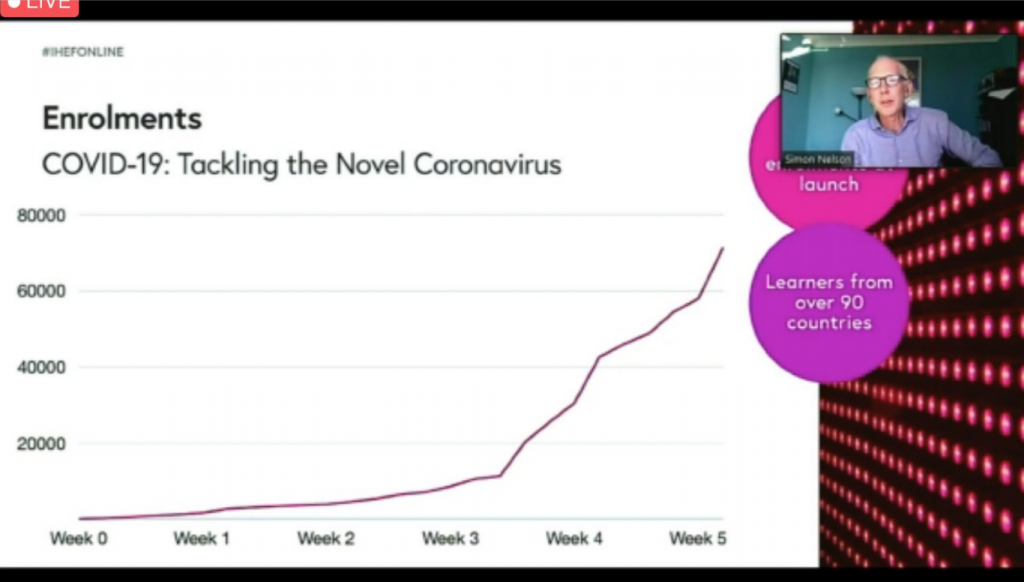A “hard look” at the need for international travel and a shift to a combination of face-to-face and online learning provisions partially due to the innovations borne out of the COVID-19 crisis were just some of the predictions discussed during UUKi’s International Higher Education Forum online conference.
News and business analysis for Professionals in International Education
Have some pie!
Turn a crisis into an opportunity – IHEF online
 The panel featured representatives of education organisations operating in overseas markets, who discussed what’s on the horizon for international education.
The panel featured representatives of education organisations operating in overseas markets, who discussed what’s on the horizon for international education. “We as a sector are actually, in a way, another fossil fuel industry”
Focusing on the topic of ‘what will international education look like 20 years from now?’, a panel of experts across higher education, edtech, climate change and sustainability put forward their thoughts on what factors are on the horizon for the future of the sector.
Director of Pomegranate Global and co-founder of Climate Action Network for International Educators, Ailsa Lamont, started the discussion with a focus on how the international education sector can step up and do more around climate change.
“We do have a slight pause on emissions at the moment…[but] this problem of climate change is not going away,” she noted.
“The fact is that we as a sector are actually, in a way, another fossil fuel industry. Our primary business model is flying around the world and encouraging people to fly.
“And I think it’s pretty clear that given all the technology that we have today and our knowledge of the carbon cost of travel, that if we were to start from a clean sheet and redesign the whole business, international education probably wouldn’t look quite like it does today.”
Lamont said the sector needs to take a “hard look” at the flights being taken and see if they really are necessary.
“The carbon cost of international educational operations needs to be put front and centre of every of our strategy…your institution might actually be able to help turn this particular [coronavirus] crisis into an opportunity to innovate and to really take some action.”
In response to the coronavirus pandemic, a large number of edtech companies are offering services to universities, schools and students to limit the disruption to learning.
At social learning platform FutureLearn, CEO Simon Nelson told delegates that there has been a “huge spike” in interest as of late, with around 90,000 enrolments from 90 countries in a new course, ‘COVID-19: Tackling the Novel Coronavirus’.
“I guess we will get into the questioning of whether we believe this is just a temporary blip or if this represents a paradigm shift for online learning and the transformation of higher education,” he told delegates.
“I don’t think that means it does away with the need for or the desire for face to face learning. But I think it challenges the questions about when it is important to come face to face, and when you can use the power of digital technologies to deliver a high-quality learning experience.“
Another panellist, principal and vice-chancellor at the University of Glasgow, Anton Muscatelli said that while the coronavirus crisis has acted as a catalyst for the uptake in online programs at many institutions, it has been something that Glasgow has been looking at for 24 months.
“Although it wasn’t seen as the majority of our provision, [online] is something that will take a much bigger slice,” he said.
“[Online] is something that will take a much bigger slice”
“Depending exactly on how the disease cycle works, we are looking at how we can provide more hybrid provision, and how we might be able to start a number of courses purely online.
“I actually think that from 2022 onwards, we could be in a world in which most universities will provide a combination of [online and face-to-face teaching] across the board, because of the innovations we’ve been able to introduce now,” Muscatelli added.
You can read about how the international education sector is responding to climate issues in our latest PIE Review digital magazine
Still looking? Find by category:



